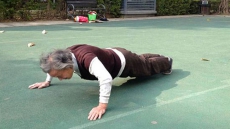Researchers have designed novel physiological-sensing textiles, dubbed “phyjamas,” that contain unobtrusive, portable devices for monitoring heart rate and respiratory rhythm during sleep.
The researchers at the University of Massachusetts Amherst in the US said the textiles that can be woven or stitched into sleep garments will prove clinically useful in health care.
“The challenge we faced was how to obtain useful signals without changing the aesthetics or feel of the textile,” said professor Trisha L Andrew, a materials chemist.
“Generally, people assume that smart textiles refer to tightly worn clothing that has various sensors embedded in it for measuring physiological and physical signals, but this is clearly not a solution for everyday clothing and, in particular, sleepwear,” Andrew said.
“Our insight was that even though sleepwear is worn loosely, there are several parts of such a textile that are pressed against the body due to our posture and contact with external surfaces,” said computer scientist Deepak Ganesan.
“This includes pressure exerted by the torso against a chair or bed, pressure when the arm rests on the side of the body while sleeping, and light pressure from a blanket over the sleepwear,” Ganesan said.
Such pressured regions of the textile are potential locations where we can measure ballistic movements caused by heartbeats and breathing, and these can be used to extract physiological variables, researchers wrote in the journal The Proceedings of the ACM on Interactive, Mobile, Wearable and Ubiquitous Technologies.
The difficulty is that these signals can be individually unreliable, particularly in loose-fitting clothing, but signals from many sensors placed across different parts of the body can be intelligently combined to get a more accurate composite reading.
Andrew, Ganesan and colleagues explain that their team had to come up with several new ideas to make their vision a reality.
They realised that there is no existing fabric-based method to sense continuous and dynamic changes in pressure, particularly given the small signals that they needed to measure.
The team designed a new fabric-based pressure sensor and combined that with a triboelectric sensor—one activated by a change in physical contact—to develop a distributed sensor suite that could be integrated into loose-fitting clothing like pajamas.
They also developed data analytics to fuse signals from many points that took into account the quality of the signal coming in from each location.
The researchers said this combination allowed them to detect physiological signals across many different postures.
They performed multiple user studies in both controlled and natural settings and showed that they can extract heartbeat peaks with high accuracy, breathing rate with less than one beat per minute error, and perfectly predict sleep posture.
“We expect that these advances can be particularly useful for monitoring elderly patients, many of whom suffer from sleep disorders,” said Andrew.
Researchers noted that current generation wearables, like smartwatches, are not ideal for this population since elderly individuals often forget to consistently wear or are resistant to wearing additional devices, while sleepwear is already a normal part of their daily life.
“More than that, your watch can’t tell you which position you sleep in, and whether your sleep posture is affecting your sleep quality; our Phyjama can,” Andrew said.




